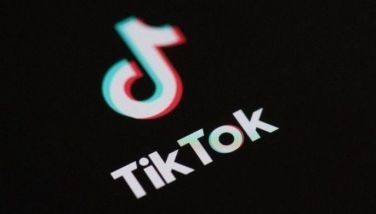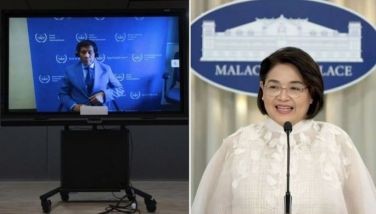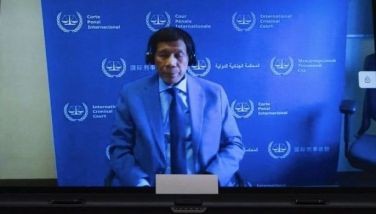Pharmaceutical companies move to stop ‘brain drain’
December 15, 2005 | 12:00am
"Being a doctor is hard today," says cardiologist Dr. Marcelito Durante, a former president of the Philippine College of Physicians (PCP), the country’s premier association of internal medicine specialists.
"A public doctor’s salary is not much different from an ordinary employee. Even those in private practice don’t earn as much, which is why many potentially good doctors opt to study nursing just to go abroad," he says.
If local doctors are given enough support, the Philippines can be on the world’s medical map like Singapore and Hong Kong, which are sought for their various medical expertise. Fortunately, responsible pharmaceutical companies are always there to assist Filipino doctors professionally.
Servier Philippines Inc. (SPI), the Philippine subsidiary of Les Laboratoires Servier, the largest privately owned French pharmaceutical company in the world, is one of them.
For several years now, SPI has actively supported doctors, different medical organizations and institutions in the country through research grants, awards and fellowships.
The Philippine pioneers in the fight against diabetes, Dr. Augusto Litonjua and Dr. Ricardo Fernando, still remember the days when they were starting the war against the disease.
Litonjua is the founder and current president of the Philippine Center for Diabetes Education Foundation (PCDEF), while Fernando is the founder and president of the Institute for Studies on Diabetes Foundation Inc. (ISDFI).
Pharmaceutical companies like Servier have been "very supportive" of ISDFI’s and PCDEF’s anti-diabetes awareness drives, various international and local symposia about the disease and other activities, Litonjua says.
"Servier is one of our partners in healthcare delivery. They have helped us conduct conferences about diabetes, which have resulted in greater public awareness about the disease and how they can effectively manage it," he says.
"Servier was one of the early sponsors of the first series of international conferences on diabetes," Fernando says.
"After that, they gave their full support to most projects of ISDF, including sponsoring our students’ further studies and other activities," he adds.
Dr. Ramon Abarquez, former president of the Philippine Heart Association, also recalls the day when he and his colleagues were in dire need of support for a groundbreaking project.
"When we returned from an international meeting of cardiologists in Singapore, People Power was happening. We wanted to develop our research work, which involved the pioneering use of metabolic energizers against cardiovascular ailments," he says.
Metabolic energizers, he explains, help restore blood flow and facilitate glucose usage in the cells for energy. Developing it would mean less expensive medicines for heart attack patients.
But they could not find any sponsors for the project at that time. The doctors turned to Servier, which eventually provided funds to complete the project.
When the results were presented to the World Cardiology Congress in 1990, experts hailed it as a breakthrough. Today, metabolic energizers are now widely used for heart attack sufferers.
SPI also helps different health organizations study and develop new strategies against diseases. Philippine Society of Endocrinology and Metabolism (PSEM) president Dr. Bobby Mirasol says they have been receiving research grants from SPI for years. SPI also instituted the Philippine College of Physicians Most Outstanding Resident in Internal Medicine (PCP-MORIM) award to encourage residents to excel in their training.
"A public doctor’s salary is not much different from an ordinary employee. Even those in private practice don’t earn as much, which is why many potentially good doctors opt to study nursing just to go abroad," he says.
If local doctors are given enough support, the Philippines can be on the world’s medical map like Singapore and Hong Kong, which are sought for their various medical expertise. Fortunately, responsible pharmaceutical companies are always there to assist Filipino doctors professionally.
Servier Philippines Inc. (SPI), the Philippine subsidiary of Les Laboratoires Servier, the largest privately owned French pharmaceutical company in the world, is one of them.
For several years now, SPI has actively supported doctors, different medical organizations and institutions in the country through research grants, awards and fellowships.
The Philippine pioneers in the fight against diabetes, Dr. Augusto Litonjua and Dr. Ricardo Fernando, still remember the days when they were starting the war against the disease.
Litonjua is the founder and current president of the Philippine Center for Diabetes Education Foundation (PCDEF), while Fernando is the founder and president of the Institute for Studies on Diabetes Foundation Inc. (ISDFI).
Pharmaceutical companies like Servier have been "very supportive" of ISDFI’s and PCDEF’s anti-diabetes awareness drives, various international and local symposia about the disease and other activities, Litonjua says.
"Servier is one of our partners in healthcare delivery. They have helped us conduct conferences about diabetes, which have resulted in greater public awareness about the disease and how they can effectively manage it," he says.
"Servier was one of the early sponsors of the first series of international conferences on diabetes," Fernando says.
"After that, they gave their full support to most projects of ISDF, including sponsoring our students’ further studies and other activities," he adds.
Dr. Ramon Abarquez, former president of the Philippine Heart Association, also recalls the day when he and his colleagues were in dire need of support for a groundbreaking project.
"When we returned from an international meeting of cardiologists in Singapore, People Power was happening. We wanted to develop our research work, which involved the pioneering use of metabolic energizers against cardiovascular ailments," he says.
Metabolic energizers, he explains, help restore blood flow and facilitate glucose usage in the cells for energy. Developing it would mean less expensive medicines for heart attack patients.
But they could not find any sponsors for the project at that time. The doctors turned to Servier, which eventually provided funds to complete the project.
When the results were presented to the World Cardiology Congress in 1990, experts hailed it as a breakthrough. Today, metabolic energizers are now widely used for heart attack sufferers.
SPI also helps different health organizations study and develop new strategies against diseases. Philippine Society of Endocrinology and Metabolism (PSEM) president Dr. Bobby Mirasol says they have been receiving research grants from SPI for years. SPI also instituted the Philippine College of Physicians Most Outstanding Resident in Internal Medicine (PCP-MORIM) award to encourage residents to excel in their training.
BrandSpace Articles
<
>
- Latest
Latest
Latest
March 3, 2025 - 6:14pm
By Dominique Nicole Flores | March 3, 2025 - 6:14pm
March 3, 2025 - 5:00pm
March 3, 2025 - 5:00pm
January 10, 2025 - 12:25pm
By Nic Satur Jr. | January 10, 2025 - 12:25pm
December 16, 2024 - 10:38am
December 16, 2024 - 10:38am
December 2, 2024 - 6:19pm
December 2, 2024 - 6:19pm
Recommended































